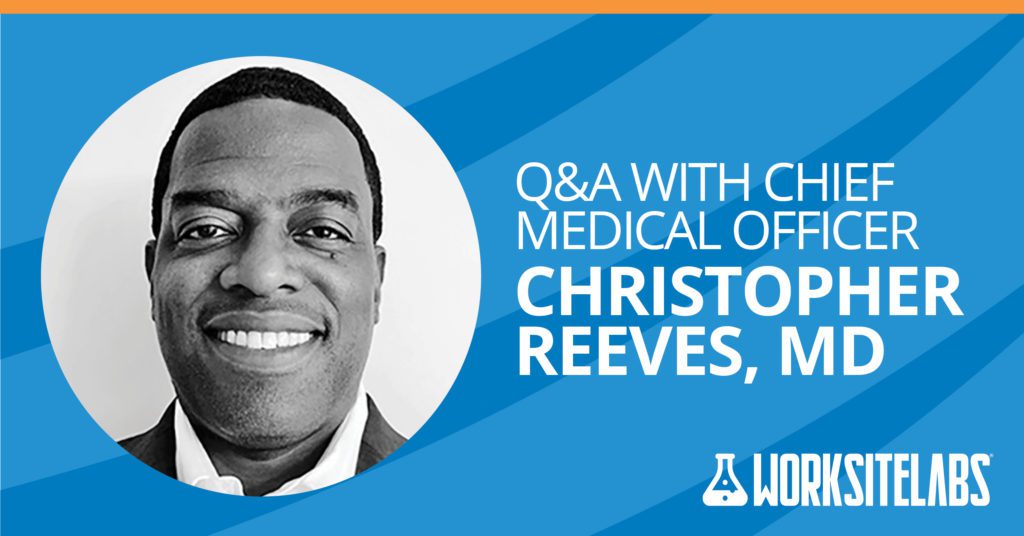Board-certified anesthesiologist, serial entrepreneur, lifelong computer coder and contributor to the first book on anesthesia informatics. These are just a few attributes that make Christopher Reeves, MD, a unique and ideal fit for the role of Worksite Labs chief medical officer.
Dr. Reeves has a more varied background than the typical businessman in the healthcare industry. He boasts a medical degree and an MBA from the University of Illinois and has a long history of ambitious business ventures, having started a software company during the dot-com boom and an anesthesiology practice in Atlanta.
Dr. Reeves joined Worksite Labs in May, bringing many years of quality metrics and healthcare informatics experience. His numerous certifications and range of skills help Worksite Labs operate more efficiently and cooperate smoothly with business partners and investors.
He spoke with us about his experience, the future of the COVID-19 health crisis and his work with Worksite Labs.
***
First, let’s get to know some of the basics of who you are. Where are you from? What is your educational background? Can you tell us about your family?
Born and raised in Ann Arbor, I graduated from the University of Michigan and then went to the University of Illinois, where I worked toward my MD and MBA. That was at the tail end of the dot-com boom, and, during my studies, I took a two-year leave of absence and started a software company.
That company didn’t make it past 9/11, like so many other businesses at that time. So I went back to finish school then did my residency at Johns Hopkins University. I began a PhD program in the School of Public Health, but I left to go into private practice as an anesthesiologist in Atlanta. I started a practice down there with a couple of other doctors and ran it for about a decade.
I now live in Washington, D.C. I have two sons; my oldest is going off to college in the fall, and my youngest just finished sixth grade.
What led you to pursue the unique combination of an MD and an MBA?
Originally, I was considering an MD/PhD combo through the University of Illinois Medical Scholars Program. But while I was interviewing and doing research with that program, I learned about an opportunity with the business school to earn an MBA.
I had been a serial entrepreneur during my undergraduate studies, starting with a web development company right as the internet was brand new. I’ve always had this business interest, so when I found out about the MBA program at Illinois, I decided to go for it.
How did you get your start in the healthcare informatics world? What role does informatics play in how health care workers tackle public health crises like COVID-19?
I’ve been using computers since I was 9 years old. Back in the early ’80s, we had a computer class in my elementary school where we learned how to code. I’ve always had an interest in technology.
When I was at Hopkins in the early 2000s, healthcare was primarily pen and paper. I worked with one of my mentors to discuss how to automatically capture procedural charges from electronic medical records (EMR) systems, which apply digital concepts to human workflows. That mentor and I even co-authored a chapter in the first book on anesthesia informatics.
In short, informatics is basically the intersection of technology and information, data transmission, and human elements such as communication and workflow. With my background in computers, it was a natural fit for me. Fast forward to today, and EMRs have allowed the management of the pandemic to be a lot more robust than it would have been 20 or 30 years ago.
For example, when the lockdown happened and social distancing became a practice, people still needed to be treated. That’s when some of the restrictions on telemedicine were unleashed, allowing healthcare providers to change their workflow — how they interact with and treat patients.
Informatics helped accomplish that and was also very helpful in figuring out the symptomatology of COVID-19. In other words, collecting data from people having different experiences around the world helped doctors and scientists compile lists of symptoms, protocols and possible treatments.
How did you come to join Worksite Labs?
I’ve known CEO Gary Frazier and CFO Craig Beam for several years. We met at a conference several years ago when I was opening my anesthesia practice, and we became friends. Gary, like me, has been a serial entrepreneur, and I’ve acted as an investor and an adviser to him.
A few months ago, Gary called as Worksite Labs was expanding. He noted the company was getting to a point where there would be advantages to having a physician on board. I’d have the opportunity to help guide the organization, among other responsibilities. We talked about it for a little while, and I joined in May.
Describe your role in more detail. How do your background and expertise make you an ideal fit for Worksite Labs?
Because this is a medical-based business, it’s good to have a physician with business knowledge — to help bridge the gap between the clinical side and the business side. When talking to investors, I can provide clarity on different clinical processes and why they are relevant from a business-development standpoint. Being able to translate between those two languages, so to speak, is very helpful.
I did an internship at Medtronic while I was pursuing my business degree and frequently spoke with the physicians there. They put it this way: “It’s easier to teach a physician some basic business principles and concepts than it is to teach businesspeople about medicine.” What I bring to the table is that evasive ability to teach businesspeople about medicine — because I’m both a businessperson and a medical professional.
What are your primary goals when it comes to your work with Worksite Labs? What would you like to accomplish both on a personal level and in fulfilling the company’s mission?
It’s an entrepreneurial environment, which I like: It’s fast-paced, rapidly growing, ever-shifting. But because of its growing nature, the company needs systematic organization from critical and best-practices standpoints. On the business side, I have a lot of experience with business protocols, quality assurance and similar things. I’m bringing that structure to the organization, making sure things on both the clinical and business end are being organized, structured, monitored and managed appropriately.
As we move into the latest phase of the COVID-19 crisis, including new variants, how do you believe testing will continue to be a key weapon in fighting the virus?
I think testing demands will potentially go down as vaccination rates go up, depending on how state and local governments decide to handle it. But the real concern arises with the new variants of COVID-19. These variants could potentially cause breakthrough infections: people who are vaccinated but nonetheless test positive.
If breakthrough infection rates start to become higher with variants and mutations, then testing will come right back to the forefront.
What would you say is the most rewarding part of your work and your career? What are you most looking forward to?
Being an innovator on the front lines of a global pandemic and being part of the solution is an amazing opportunity. Going forward, I’m excited to take this company that was started to serve a relatively narrow purpose and expand its scope.
We’re looking to leverage Worksite Labs’ growth and accomplishments so far and pivot into something long term and sustainable. That means providing vaccines, offering quality, quick-turnaround testing for future diseases and outbreaks, and any number of other possibilities. Being part of an innovative, rapidly growing company … it’s exciting.




